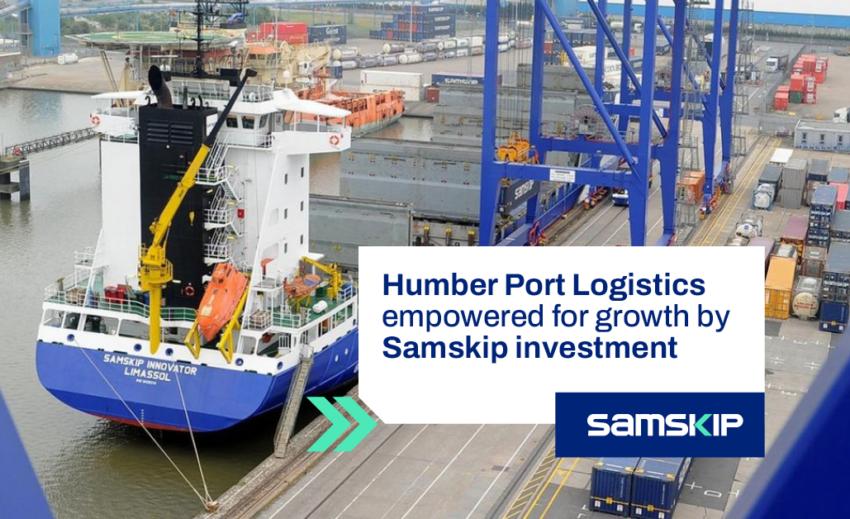Samskip has increased its commitment to UK container transport by acquiring a significant shareholding in Humber Port Logistics (HPL) and agreeing a strategy for the haulier’s existing management to expand its business ambitions.

HPL principally serves ports on the River Humber. While making use of synergies and resources under its new ownership structure to grow and add services to its portfolio, HPL will continue to operate independently.
“This agreement opens a new chapter for HPL and supports our current expansion plans,” said Jamie Benton, Managing Director, HPL. “Reliability and agility have provided the platform for HPL to establish a robust market share in and around Humberside based on the performance of a fleet of over 75 trucks.
“Now, after working together for several years, investment by one of Europe’s leading container logistics groups will move us forward to better serve our clients by growing HPL inside and outside the region. We anticipate better asset utilisation, engagement at a more strategic level with our customer base, and new opportunities to work with 4PL partners.”HPL management and staff will remain in post, said Benton.
For Samskip, Richard Beales, Regional Director, UK, said that deepening the relationship with one of its main UK haulage partners strengthens its commitment to the market, and would accelerate the shift towards sustainable multimodal transport.
“Our strategy for the UK continues to evolve. Investing in HPL is a considered response to a market seeking greater reliability and high-quality service levels. It opens the way to develop new business streams that are complementary to our existing focus in the UK.”
The move is the latest in a series of Samskip commitments to UK logistics, following investments in customs clearance activities which have proved critical in supporting container transport, in warehousing and LCL initiatives, and in the launch of separate Amsterdam-UK east coast shortsea services to add to its existing Rotterdam-UK connections.
“As a multimodal group operating across Europe, experience shows that joining parts of the supply chain together reinforces stability in markets where volatility is an issue,” said Beales. “Business stability creates opportunities for all stakeholders to better serve their client base.”